BRIEFING FOR TEACHERS
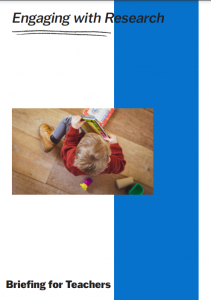
This document is for teachers who are interested in drawing on research to inform and/or inspire their teaching. The project focused on teachers’ encounters with literacy in the primary phase but the recommendations are also relevant to other phases, curricular subjects and aspects of the teaching role.
BRIEFING FOR SCHOOL/TRUST LEADERS
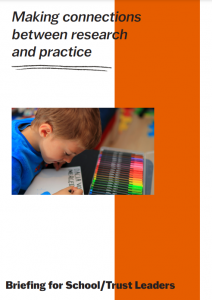
Making connections between research and practice
This document is for schools and trusts that are interested in drawing on research to inform and/or inspire teaching. The project focused on teachers’ encounters with literacy research in the primary phase but the recommendations are also relevant to other phases, curricular subjects and aspects of the teaching role.
BRIEFING FOR TEACHER EDUCATORS
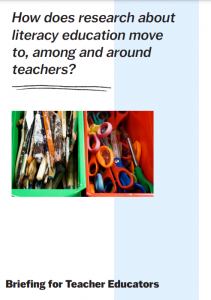
How does research about literacy education move to, among and around teachers?
This document is for teacher educators who are interested in supporting trainees to strengthen relationships between research and practice and to draw on a wide range of evidence to inform and/or inspire their teaching. The project focused on teachers’ encounters with literacy in the primary phase but the recommendations are also relevant to other phases, curricular subjects and aspects of the teaching role.
BRIEFING FOR POLICY MAKERS
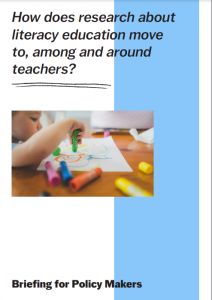
How does research about literacy education move to, among and around teachers?
If educators and policymakers focus only on certain kinds of research (such as those addressing specific topics or using a narrow range of methodologies) then potentially fruitful ways of supporting children’s literacy learning in primary schools may be missed. Literacy research emanating from different perspectives can play an important role in developing inclusive and empowering literacy education which challenges inequalities and ensures children are equipped for their current and future lives.
BRIEFING FOR INDEPENDENT CONSULTANTS
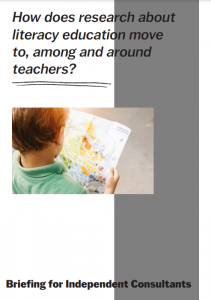
How does research about literacy education move to, among and around teachers?
This document is for consultants who are interested in developing their own knowledge and critical thinking about literacy education and the support they give to schools. The project focused on the primary phase but the recommendations may also be relevant to those working in other phases.
BRIEFING FOR RESEARCHERS
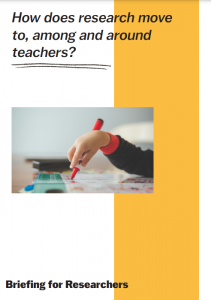
How does research move to, among and around teachers?
This document is for all those with an interest in strengthening relationships between research and education in including researchers within and outside universities, organisations that engage in research and research funding bodies. The project focused on teachers’ encounters with literacy research in the primary phase but the recommendations are also relevant to other phases, curricular subjects and aspects of teaching.